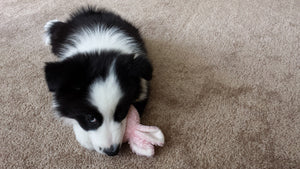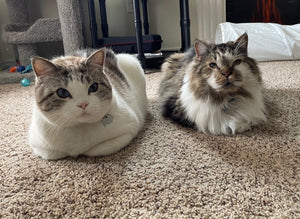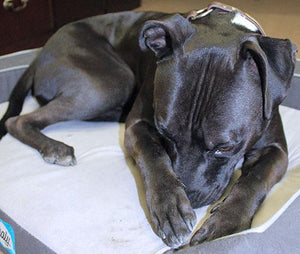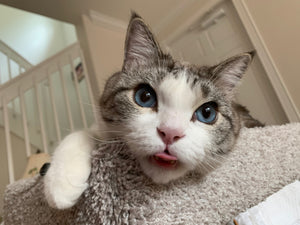The Science Behind Why Cats Drool and What You Can Do About It

Cats are adorable creatures that often elicit a sense of calm and contentment. However, you may sometimes notice their feline companions drooling excessively. Is this a sign to be worried? Well, that depends on why your cat is drooling.
Let’s explore the various reasons why cats drool and when you should be concerned about your cat's drooling.
What Is Drooling?
Drooling is the process of saliva flowing out of the mouth involuntarily. It is a natural response that occurs when the salivary glands produce an excessive amount of saliva. The causes of drooling can be due to various factors, such as medications, neurological disorders, or infections.
Cats are known to drool, and this can be a result of several factors. Some cats drool when they are content, while others do so due to underlying medical conditions. Normal drooling in cats is typically mild and does not require any treatment. However, excessive drooling can indicate an underlying issue that requires veterinary attention.
Why Is My Cat Drooling?
Because there are so many different possibilities as to why your cat is drooling, it can be hard to locate the exact cause. However, there can be a few different causes, such as feeling content, experiencing anxiety or stress, dental issues, poisoning, or neurological disorders.
Contentment
Cats can drool when they are relaxed and content. This type of drooling is usually mild and should not cause concern. Examples of situations that can cause content drooling in cats include petting, cuddling, or even when a cat is being groomed.

Anxiety Or Stress
Cats that are anxious or stressed may drool excessively. This type of drooling is often accompanied by other symptoms such as panting, vocalizing, or pacing. Examples of situations that can cause anxiety or stress in cats include changes in their environment or routine, loud noises, or even car rides.
Dental Issues
Dental problems such as gum disease or tooth decay can cause cats to drool excessively. Other symptoms of dental issues may include bad breath, swollen gums, or reluctance to eat.
Poisoning
Ingestion of toxic substances can cause cats to drool excessively. Examples of toxic substances include household cleaning products, essential oils, insecticides, or even certain plants.
Neurological Disorders
Neurological disorders such as epilepsy or vestibular disease can cause cats to drool excessively. Other symptoms may include seizures, loss of balance, or changes in behavior.

How to Treatment and Prevent Cat Drooling
The treatment for excessive drooling in cats depends on the underlying cause. If the drooling is due to contentment or stress, then no treatment is necessary. However, if the drooling is due to an underlying medical condition, then veterinary attention is necessary. Treatment options may include medications, surgery, or home remedies.
To prevent excessive drooling in cats, regular check-ups with a veterinarian are recommended. Maintaining proper dental hygiene, such as brushing your cat's teeth, can also help prevent dental issues that may cause excessive drooling. Providing a safe environment for your cat and keeping toxic substances out of reach can also help prevent poisoning.
If your cat’s drooling is caused by stress, providing them with their own space is a great way to calm them down. Many veterinarians recommend making an enclosed area that only your cat can enter through a cat door, such as a catio or a blocked-off laundry room.
While drooling in cats can be normal, excessive drooling can indicate an underlying issue that requires veterinary attention. Understanding the various causes of drooling in cats and seeking timely veterinary care can help ensure your cat remains happy and healthy. Monitoring your cat's drooling and seeking veterinary attention when necessary is crucial in maintaining your cat's overall well-being.





